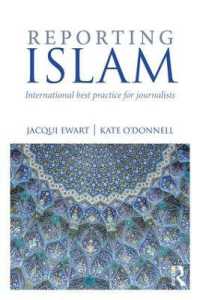Full Description
Joseph Goddard (1833-1910) was a philosopher, theorist and historian of the music of the late eighteenth and early nineteenth centuries, who developed some highly influential ideas about the relationship between music and human evolution. First published in 1868, this study presents Goddard's theory on the connection between music and the human spirit, in which he argues that two major counterparts of emotion - instinctive and abstract - correlate directly with two key elements of music: melody and harmony. He demonstrates this through a fascinating and thorough comparative analysis of the works of Mozart, Beethoven, Haydn and Mendelssohn, and moves on to show how emotion is expressed in the melodic and harmonic styles of sacred music and opera. Concluding with a detailed analysis of how mental progress has influenced the development of music, this thorough and judicious work remains of interest in the fields of music history, philosophy, and theory.
Contents
Preface; 1. The two characters of sentiment, and the two sections of musical effect; 2. The exigency in expression which abstract sentiment involves, and the structural plan of the great modern instrumental forms of composition; 3. A comparative analysis of the spirit of the instrumental music of Haydn, Mozart, Beethoven, and Mendelssohn; 4. The intellectual position of instrument music; 5. The principles on which the musical and literary plan of an opera, should be based; 6. The spirit of sacred music. Remarks on the oratorio; 7. Some remarks concerning the influence of mental progress upon music; Conclusion.








